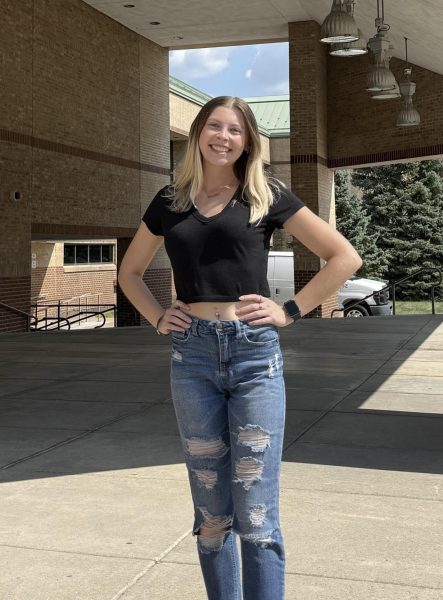“It Happened Here” screening a success
April 8, 2015
“It Happened Here,” directed by Lisa F. Jackson, screened at Burchfield Penny Mar. 12 as a part of the spring semester Beyond Boundaries: Dare to be Diverse documentary series at 7 p.m. at Buffalo State College. Five women discussed how breaking the silence changed their lives forever as they told their stories about their experiences with sexual assault on campus.
One of the first students who reached out about her experience with sexual assault on campus was an Amherst College [Massachusetts] student by the name of Angie Epifano. Epifano was raped her freshman year of college and was silent for months. When Angie finally broke the silence to a counselor, she didn’t believe her and told her to “forgive and forget”. Angie decided to do an art photo piece about her rape and ended up in a psychiatric ward after admitting to a counselor that she thought of suicide.
Later on, she wrote about her experience and it instantly grabbed the media’s attention. After Angie reached out to other survivors of college sexual assault, many other women began to share their stories.
“It was very eye opening, certainly disturbing as well and I think it is important to educate not only our youth but everyone,” Elizabeth Wall, sophomore biology and English double major, said. “Everyone should understand the reality of assault and speak up.”
Another student that decided to break the silence was Sarah O’ Brien, who was a student of Vanderbilt University [Tennessee]. When O’Brien finally decided to break the silence, she was told by her administrators that it was too late to make a report. She was disappointed to find out that her assaulter had a repeated offense, and took a break from activism. Now a graduate student of Vanderbilt College and an activist for survivors, she has received a lot of feedback. O’Brien stressed that there is healing in speaking and that silence can be hard to break.
“Trauma and empowerment related to sexual assault were depicted with complexity and sensitivity. I greatly appreciated this film,” said Monica Heavey, Buffalo State faculty member of the Academic Support Program.
Erica Daniels, who attended the University of Connecticut, broke her silence as well. Like the other sexual assault survivors, she was drugged and raped by someone that she knew. Statistics show that 85 percent of rapists are acquaintances to their victims. Daniels warned that an offender could come off as a nice guy, so you never know who could be a rapist. The college turned her away when she came forward telling her that she didn’t have enough evidence.
Breaking the silence did not end with Daniels at the University of Connecticut. Another student by the name of Kylie Angell, who also attended the University of Connecticut, decided to come forward with her story. After she was raped, her academics suffered because she could no longer concentrate in school. When Angell came forward and reported what happened to her, the administration decided that the punishment to expel him would be too severe.
Lastly, Carolyn Luby, who is also a student of the University of Connecticut, broke the silence about her sexual assault. Luby believes that the aggressive nature of the athletes on campus and attitudes toward women influences the rape culture on campus. She challenged the college’s mascot, saying that it influenced the athlete’s aggressive behavior. She received a lot of negative backlash from people all over and even threats. She is now an activist and continues to speak out about sexual assault.
“This documentary was very sensitive, powerful and well made. It was highlighting a really important issue that is often repressed,” a second faculty member of Buffalo state’s Academic Support Program, Zaibun Pasha, said.
Daniels, Angell and Luby filed clergy and Title IX, which is a civil suit, against the University of Connecticut. Despite the obstacles that all of the women faced breaking the silence, they have come a long way in reaching out to other survivors of sexual assault.
Director Lisa F. Jackson was in attendance at the screening. When asked what motivated her to reach out to the women and educate people about the issue of sexual assault on college campuses, she responded, “What motivated me was the individual stories of the young women and how they can connect it to a larger movement.”
“It was a problem that nobody was talking about and it was a problem that was destroying lives. Derailing careers and wrecking college experiences for thousands and thousands of young women and I thought it would be important to find young women who could give voice to something that nobody was really talking about.”
Email: [email protected]



